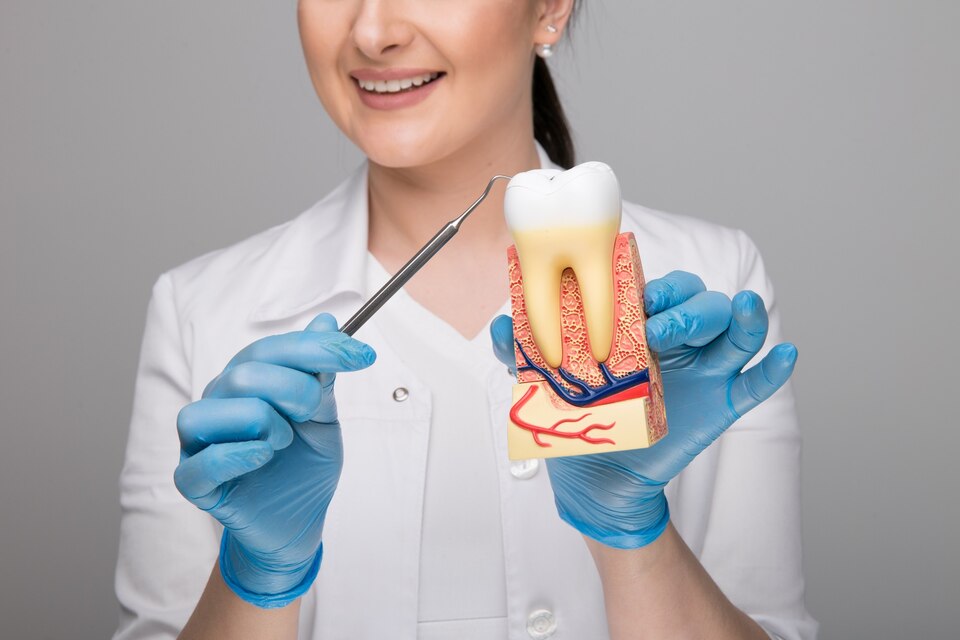Periodontal Treatment
Periodontal Treatment
Periodontal health is essential for maintaining strong teeth and preventing serious oral health issues. Periodontal treatment focuses on managing gum disease and preserving the supportive structures around your teeth to ensure long-term dental health.

Gum disease (periodontal disease) is inflammation of the gums caused by bacterial plaque. If left untreated, it can lead to gum recession, bone loss, and even tooth loss. There are two primary stages of gum disease:
- Gingivitis: The earliest stage, characterized by redness, swelling, and bleeding gums.
- Periodontitis: A more advanced stage where gum and bone deterioration occur, potentially leading to tooth loss.
- Bleeding gums when brushing or flossing
- Persistent bad breath
- Swollen, red, or tender gums
- Pain deep in the gums
- Gum recession (teeth appearing longer)
- Loose or shifting teeth
Periodontal Treatment Options
01
Professional Mechanical Plaque Removal (PMPR)
A thorough cleaning procedure that removes plaque below the gum line to promote healing. This treatment may require local anaesthesia to ensure patient comfort while accessing areas beneath the gums.
02
Antibacterial Therapy
Prescription mouthwashes or localized antibiotic treatments to reduce bacterial infection.
03
Gum Surgery (if needed)
In advanced cases, surgical procedures may be required to regenerate lost bone and gum tissue.
04
Ongoing Maintenance
Regular periodontal maintenance visits to prevent recurrence and monitor gum health.
The Patient’s Role in Managing Gum Disease
Gum disease is caused by plaque, but other risk factors (such as diabetes, smoking, genetics) can increase susceptibility and affect the response to treatment. Patients play a crucial role in managing their condition by following individually tailored oral hygiene advice provided by their dentist or hygienist. Consistently maintaining good oral hygiene at home is essential for long-term gum health and the success of periodontal treatment.

Risk Factors for Gum Disease:
- Smoking: Tobacco use significantly increases the risk of gum disease and slows healing.
- Diabetes: Poorly controlled diabetes can make gums more susceptible to infections.
- Genetics: A family history of gum disease may increase your likelihood of developing it.
- Stress: Chronic stress can weaken the immune system, making it harder for the body to fight infections like gum disease.
How to Prevent Gum Disease:
- Brush twice daily with fluoride toothpaste.
- Floss regularly to remove plaque between teeth and along the gum line.
- Eat a balanced diet rich in vitamins and minerals for healthy gums.
- Visit your dentist regularly for professional cleanings and check-ups.
Early detection and treatment of gum disease can prevent further complications and help maintain a healthy, confident smile. Book an appointment today to protect your gums and overall oral health
Book an Examination
Ready to Transform Your Smile?
Book your appointment today and experience the difference at Riverside Dental Practice.

